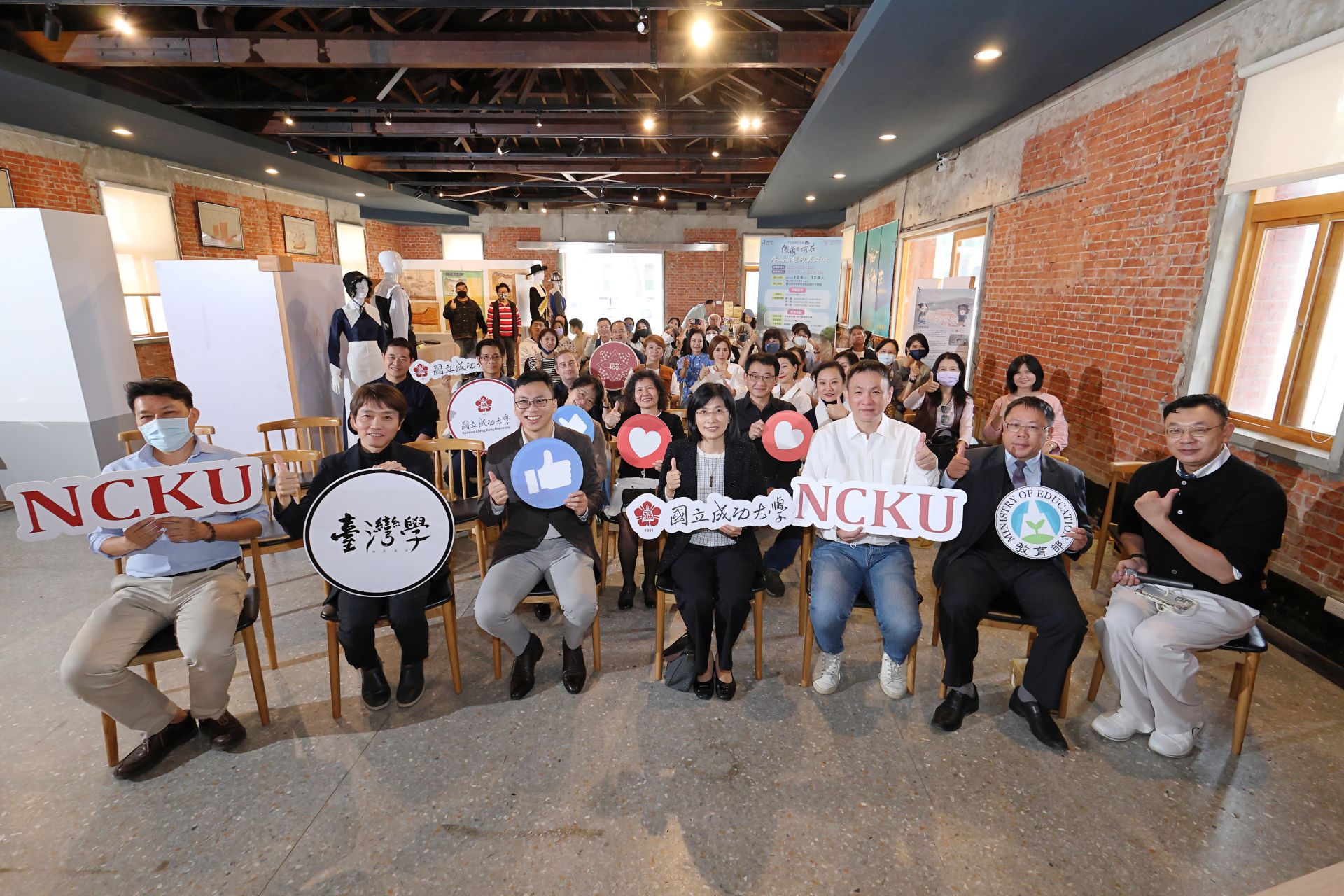SDG4
"Formosa to East Asia (Part IV)" Exhibition by NCKU Taiwan Studies: Exploring Taiwan's Early History through Diverse Formats
Since 2018, National Cheng Kung University (NCKU) has been promoting Taiwan studies, accumulating fruitful research and teaching outcomes. In celebration of its 92nd anniversary, the Taiwan Studies project team held a four-day joint exhibition titled "Formosa 偎海 e 所在: 從 Formosa 航向東亞( 四 )" from December 6th to 9th at the Historical Artifacts Museum on the Kuang-Fu Campus. The exhibition showcased the results of the university's intensive educational program and student works. The opening event on December 7th featured an engaging demonstration by Mr. Jian-Cheng Song, Chairman of the Tainan Ceramics Association and head of the Anping Pottery Workshop, showcasing the craftsmanship involved in creating the Anping teapot, a vessel believed to have been brought by Cheng-Kung Cheng during his sea-crossing expedition.
In his address, Vice President Yuh-Neu Chen explained that the title "Formosa 偎海 e 所在" reflects the university's contemplation of Taiwan's history starting from Tainan, with a later focus on maritime concepts. The project has been a collaborative effort, showcasing a rich array of content that has evolved from early script performances to the integration of digital technology this year. It underscores NCKU's commitment to the 400-year history of Tainan and aims to strengthen ties between Tainan and Taiwan.
This year's project leader, Professor Cheng-Ta Yang, incorporated text, historical sciences, and technology to engage students in understanding and participating in the subject matter. Through immersive virtual environments, students experienced life in Fort Zeelandia. Associate Professor Chia-Pin Chen utilized drama to diversify the performing arts curriculum, creating puppets representative of the Cheng-Kung Cheng era and allowing students to creatively showcase puppet performances. Additionally, three virtual reality galleries were set up to provide online experiences of traditional theater and puppetry teaching and production, enhancing online learning. Associate Professor Chi-Chang Lee's "Nineteenth-Century Taiwan Peripheral Maritime Narrative Project" explored the formation of maritime trade and alliances in the surrounding waters of Taiwan during the nineteenth century.
The opening event featured a captivating demonstration by Mr. Jian-Cheng Song, Chairman of the Tainan Ceramics Association and head of the Anping Pottery Workshop, showcasing the process of making the Anping teapot, a vessel believed to have been brought by Cheng-Kung Cheng during his sea-crossing expedition.
The Taiwan Studies project leverages a wealth of local resources from NCKU and Tainan to explore and organize the historical development of Taiwan, as well as the formation and evolution of the consciousness of "becoming Taiwanese" at various stages and its interconnectedness with the world. Through sensory experiences, perception, and emotions, students apply their abilities to engage in academic research, theatrical practices, field investigations, and design participation, enhancing their abilities in independent learning and exploration. Based on personal experiences and historical imagination, they develop unique academic presentations, theatrical creations, and cultural creative products.
The project outcomes, presented through interpretation, exhibition, translation, and interpretation (such as through drama, film, AR/VR technology, exhibitions, etc.), as well as series of academic monographs, provide important discourse and visibility for the upcoming "400th Anniversary of the Establishment of Tainan and Fort Zeelandia." They contribute to the construction of a grand narrative and content of the project's Southern Research Perspective and highlight the importance of research internationally and the profound value of Taiwan on the global stage.
In his address, Vice President Yuh-Neu Chen explained that the title "Formosa 偎海 e 所在" reflects the university's contemplation of Taiwan's history starting from Tainan, with a later focus on maritime concepts. The project has been a collaborative effort, showcasing a rich array of content that has evolved from early script performances to the integration of digital technology this year. It underscores NCKU's commitment to the 400-year history of Tainan and aims to strengthen ties between Tainan and Taiwan.
This year's project leader, Professor Cheng-Ta Yang, incorporated text, historical sciences, and technology to engage students in understanding and participating in the subject matter. Through immersive virtual environments, students experienced life in Fort Zeelandia. Associate Professor Chia-Pin Chen utilized drama to diversify the performing arts curriculum, creating puppets representative of the Cheng-Kung Cheng era and allowing students to creatively showcase puppet performances. Additionally, three virtual reality galleries were set up to provide online experiences of traditional theater and puppetry teaching and production, enhancing online learning. Associate Professor Chi-Chang Lee's "Nineteenth-Century Taiwan Peripheral Maritime Narrative Project" explored the formation of maritime trade and alliances in the surrounding waters of Taiwan during the nineteenth century.
The opening event featured a captivating demonstration by Mr. Jian-Cheng Song, Chairman of the Tainan Ceramics Association and head of the Anping Pottery Workshop, showcasing the process of making the Anping teapot, a vessel believed to have been brought by Cheng-Kung Cheng during his sea-crossing expedition.
The Taiwan Studies project leverages a wealth of local resources from NCKU and Tainan to explore and organize the historical development of Taiwan, as well as the formation and evolution of the consciousness of "becoming Taiwanese" at various stages and its interconnectedness with the world. Through sensory experiences, perception, and emotions, students apply their abilities to engage in academic research, theatrical practices, field investigations, and design participation, enhancing their abilities in independent learning and exploration. Based on personal experiences and historical imagination, they develop unique academic presentations, theatrical creations, and cultural creative products.
The project outcomes, presented through interpretation, exhibition, translation, and interpretation (such as through drama, film, AR/VR technology, exhibitions, etc.), as well as series of academic monographs, provide important discourse and visibility for the upcoming "400th Anniversary of the Establishment of Tainan and Fort Zeelandia." They contribute to the construction of a grand narrative and content of the project's Southern Research Perspective and highlight the importance of research internationally and the profound value of Taiwan on the global stage.
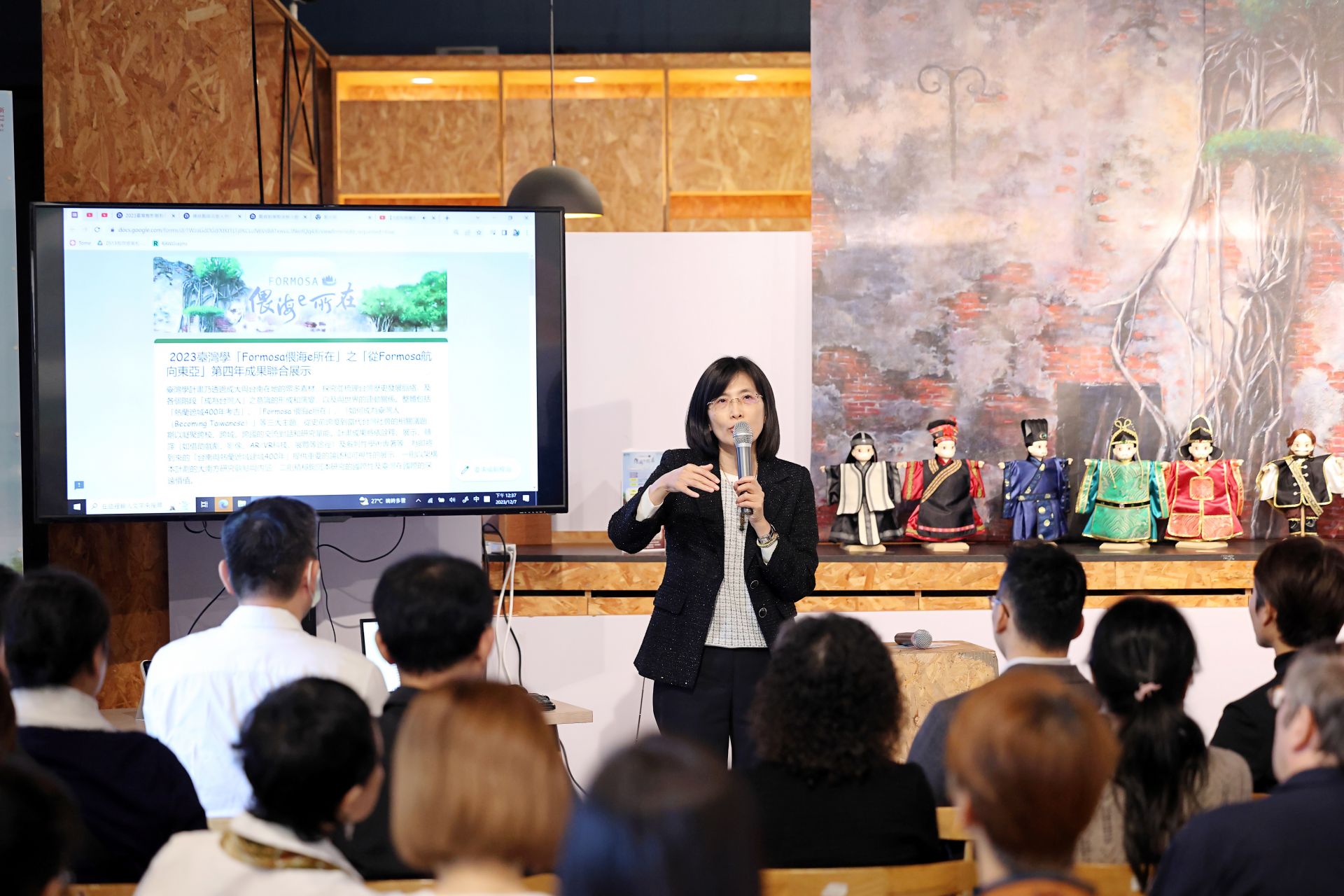
Vice President Yuh-Neu Chen explained the objectives of Taiwan Studies and the origin of the name "Formosa 偎海 e 所在."
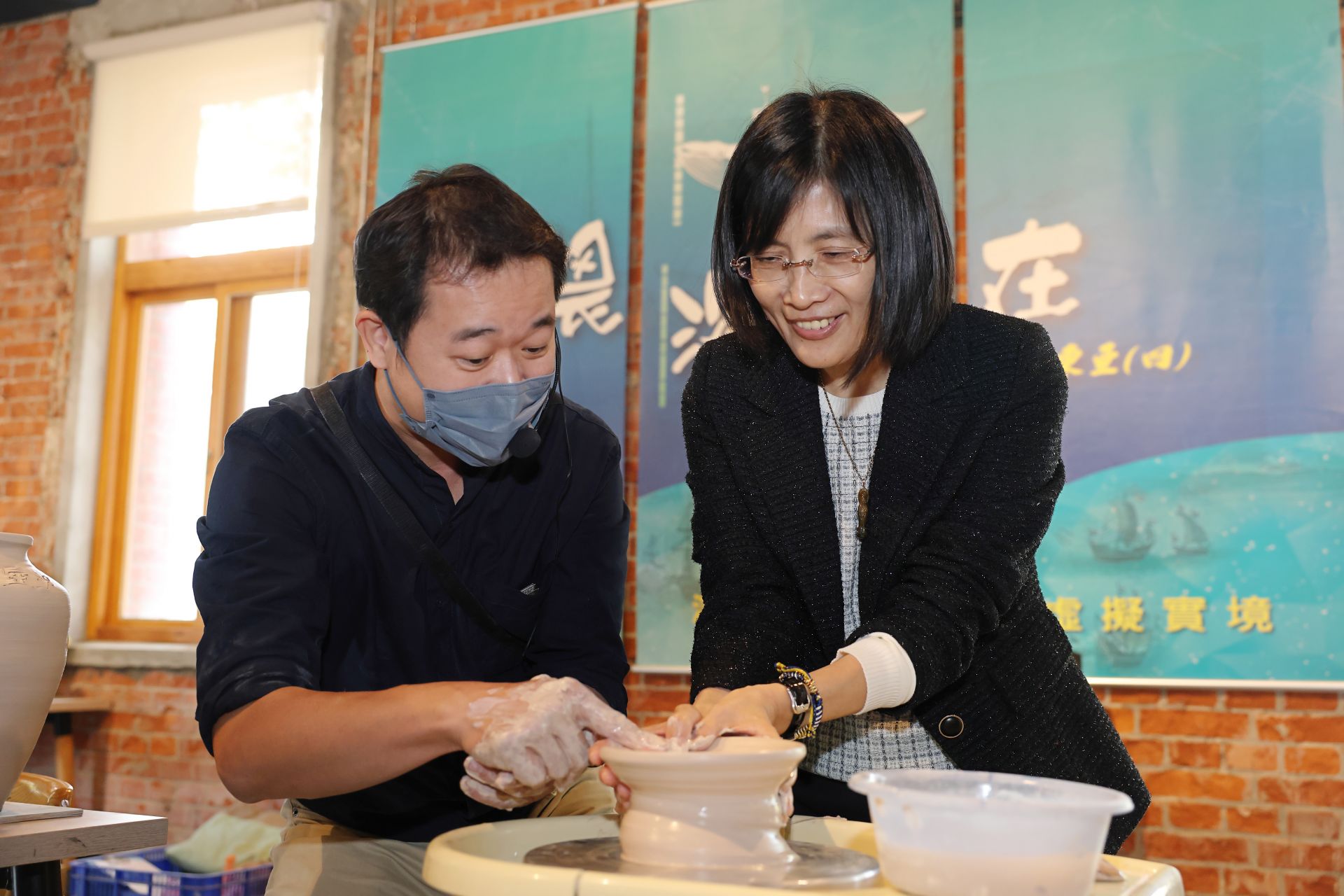
Vice President Yuh-Neu Chen experienced the process of making the Anping teapot.
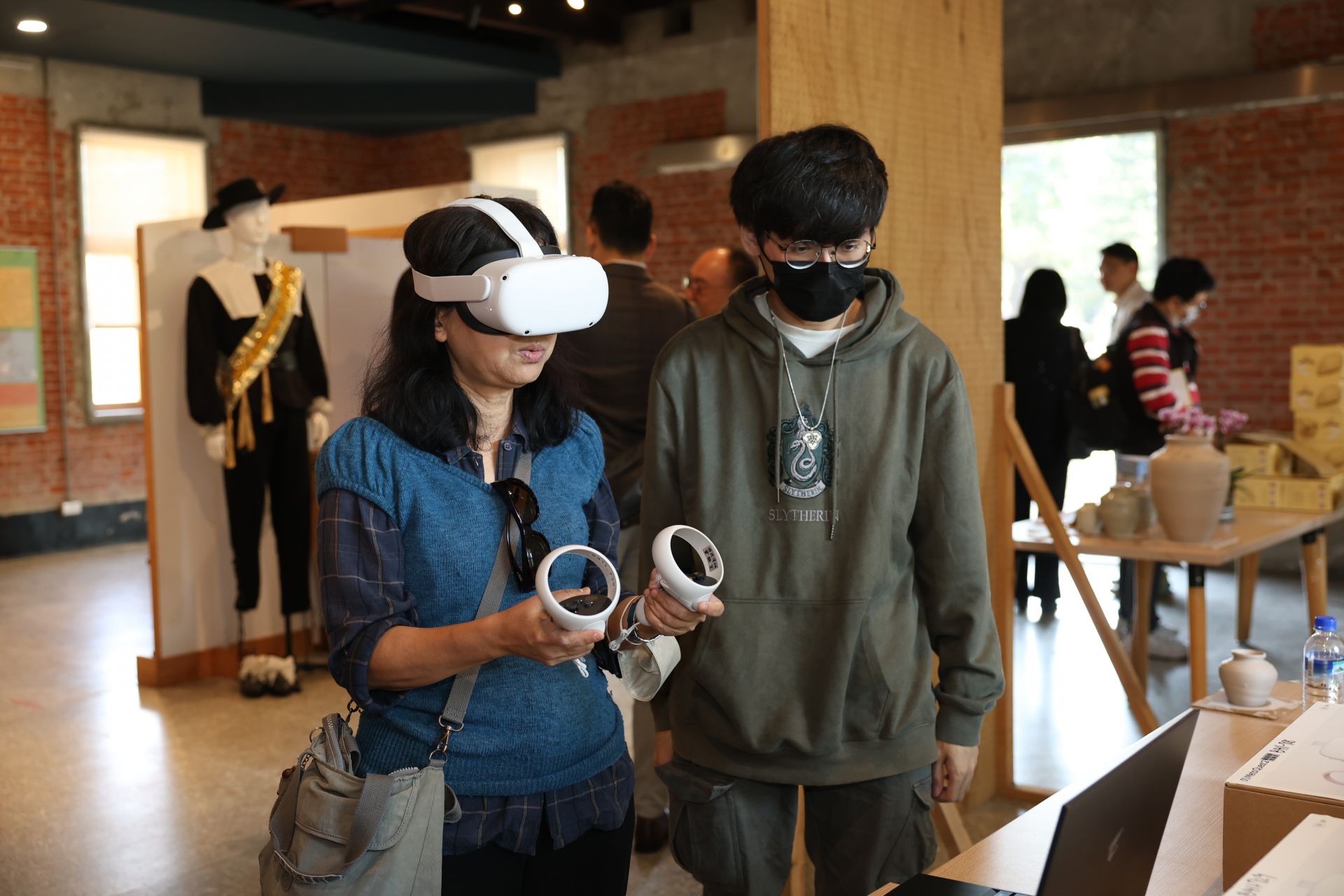
Through digital technology, texts and historical knowledge are translated to facilitate student understanding, participation, and interaction.
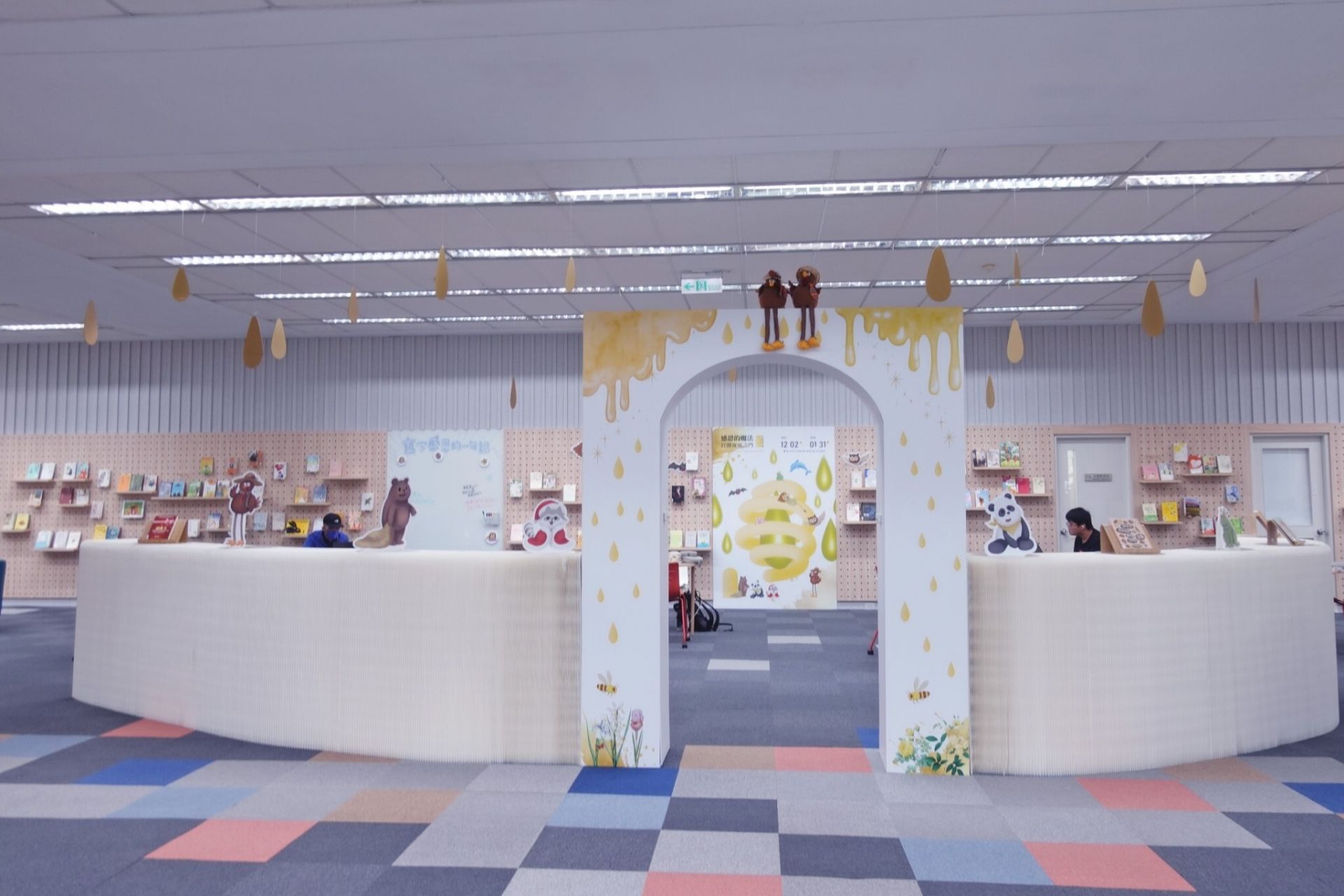
SDG4Learn Gratitude, Enjoy Blessings: NCKU Library's Themed Book Exhibition Invites You to Unlock the Magic of Gratitude
View more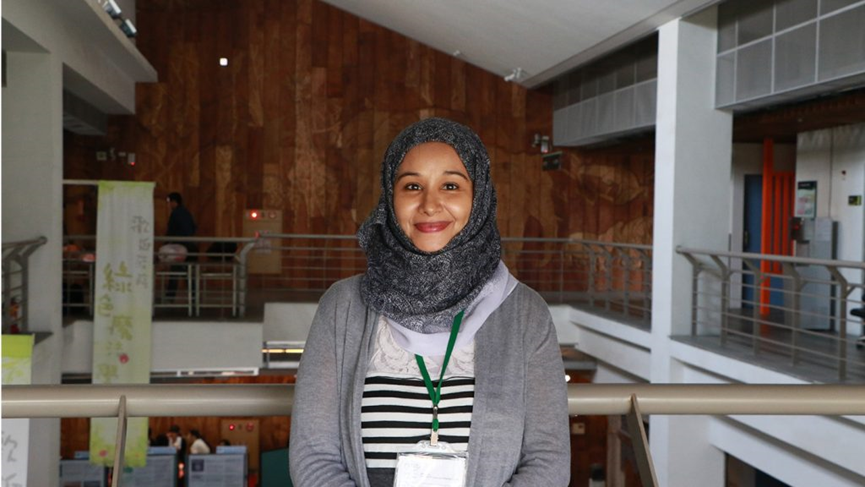
SDG4Pursuing Science in Battlefield: Yemeni Researcher
Watch the full speech by Pyllis Awor here.
View more

